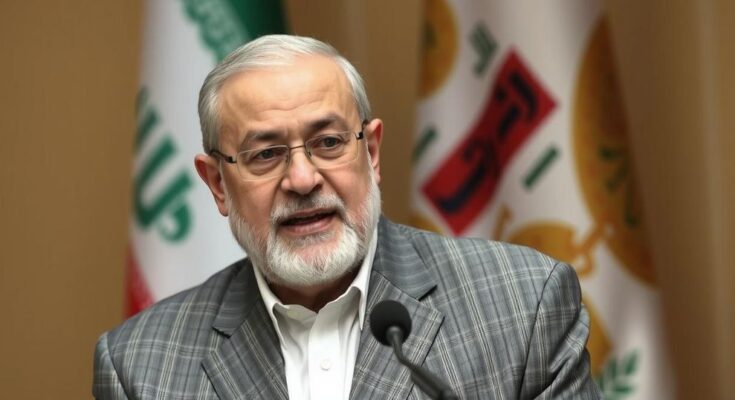Ahmed Al-Shara, Syria’s de facto leader, has condemned Iranian intervention in Syria, calling for a reevaluation of Tehran’s policies. He emphasized Syria’s sovereignty and the closure of Iranian-affiliated offices. Al-Shara plans to integrate Kurdish forces into the defense ministry while highlighting the deteriorating Iranian influence following the withdrawal of numerous militant groups.
In a recent interview, Ahmed Al-Shara, the de facto leader of Syria following the purported downfall of Bashar al-Assad, criticized the Iranian regime for its persistent interference in Syrian affairs. He called for a reassessment of Iran’s foreign policy, especially if it continues to pursue an interventionist agenda. Al-Shara emphasized the significance of Syria’s sovereignty, stating, “We did not enter Tehran or southern Lebanon; we entered our own cities and villages,” thereby rejecting Iranian influence.
Acknowledging the closure of Iranian-affiliated bases and offices by Syrian authorities, Al-Shara affirmed this action as essential for establishing a government free from external meddling. He also addressed remarks made by Supreme Leader Ali Khamenei, which denied the involvement of Iranian proxies in Syria, suggesting that these statements were intended to disrupt the newly formed governmental structure in Damascus. Al-Shara remarked that the Iranian regime’s actions could be perceived as a form of historical vengeance against Syria.
The transitional Syrian government currently faces formidable challenges, including the need to stabilize the nation while managing complex relations with Kurdish forces. To this end, Al-Shara outlined his intention to incorporate Kurdish forces into Syria’s defense framework as part of efforts to enhance security and promote development. Meanwhile, the withdrawal of numerous Iranian-backed militias underscores a significant shift in influence, as Tehran struggles to maintain its foothold within Syria amid widespread rejection of its policies.
In recent years, the relationship between Iran and Syria has evolved, particularly in light of the conflict that has engulfed the region for over a decade. Iran has actively supported the Assad regime through various proxy forces; however, as Syrian leadership evolves and seeks independence, tensions have surfaced regarding Iran’s role and influence. Ahmed Al-Shara, previously affiliated with Hayat Tahrir al-Sham, now exerts considerable influence over Syrian governance, positioning himself against foreign intervention, particularly from Iran.
In conclusion, Ahmed Al-Shara’s recent critique of Iran’s role in Syria reflects a broader drive towards restoring national sovereignty and establishing constructive relations with other nations, independent of Tehran’s influence. His insistence on the closure of Iranian bases and the integration of Kurdish forces showcases the transitional government’s commitment to rebuilding Syria. This shift indicates rising resistance against external meddling and a clear desire among Syrian leadership to prioritize the nation’s sovereignty and future prosperity.
Original Source: www.ncr-iran.org




